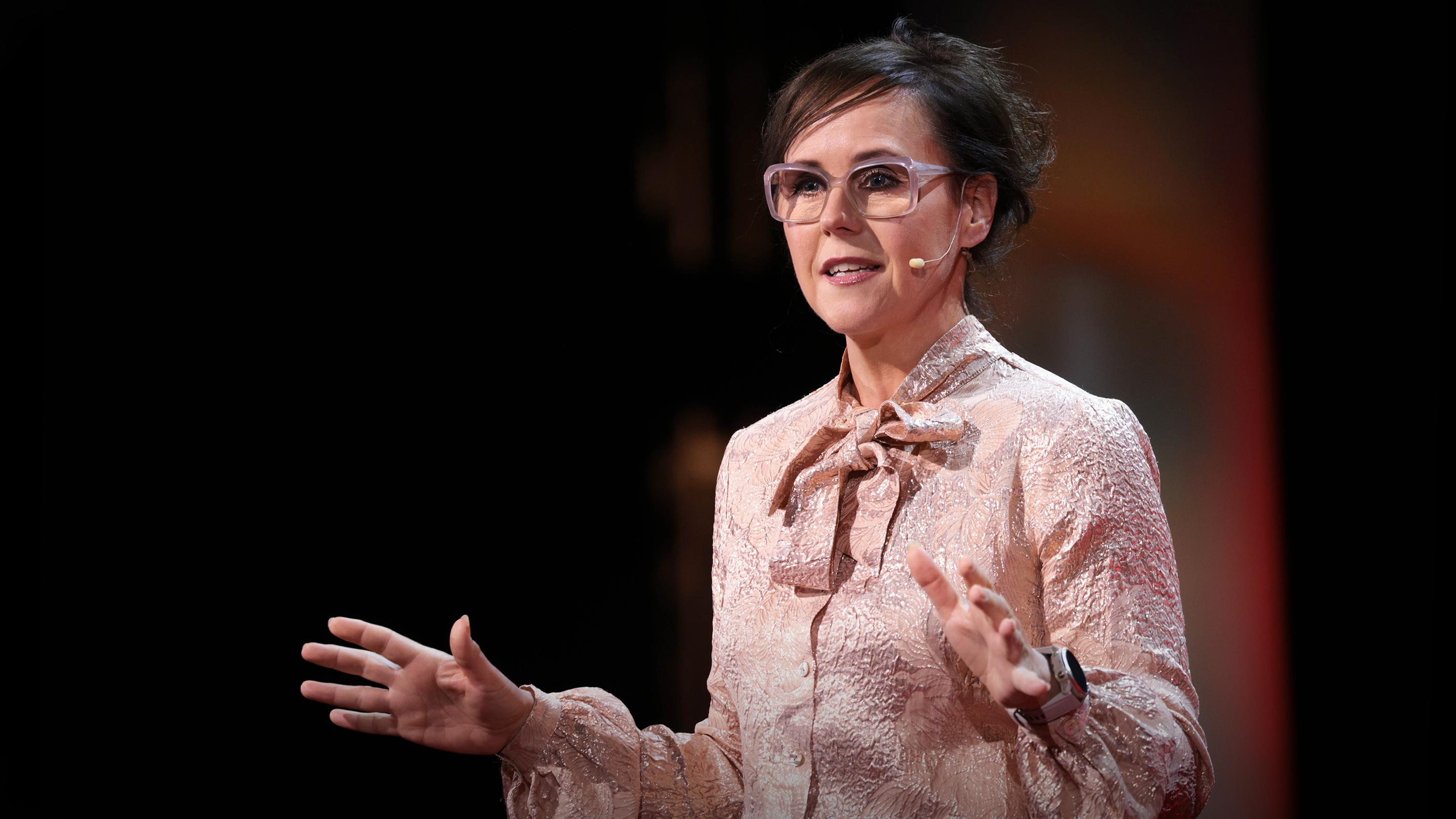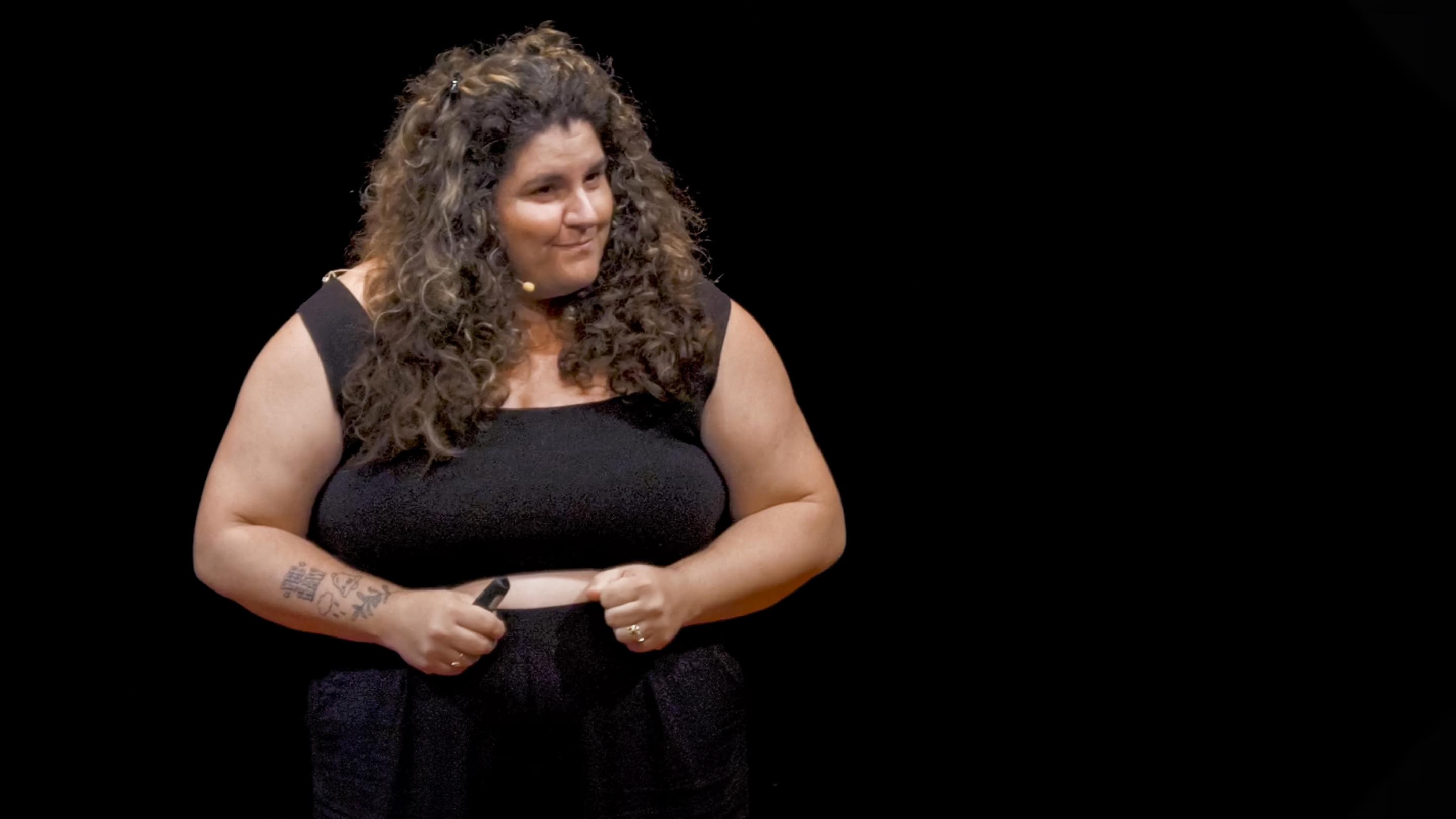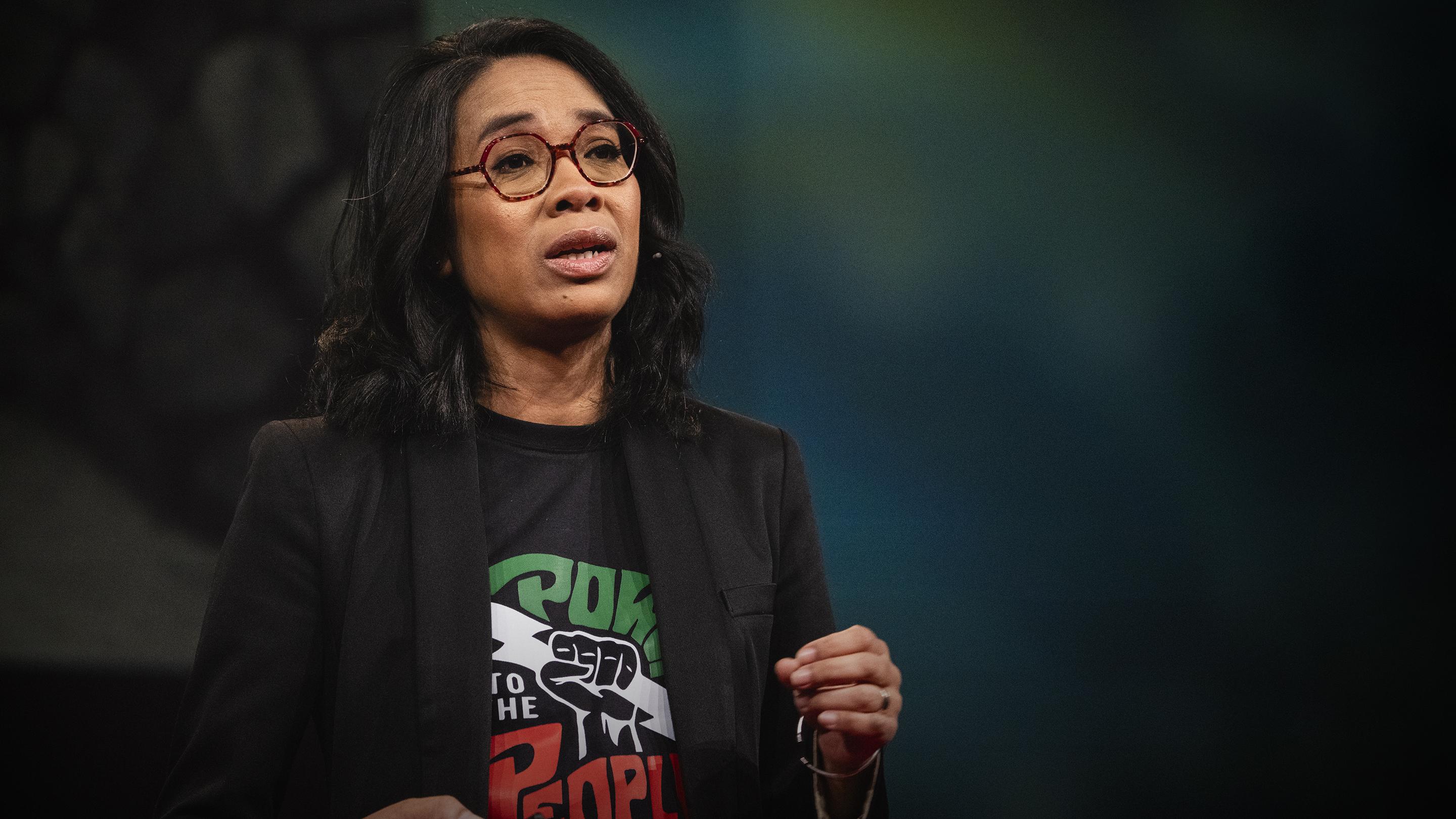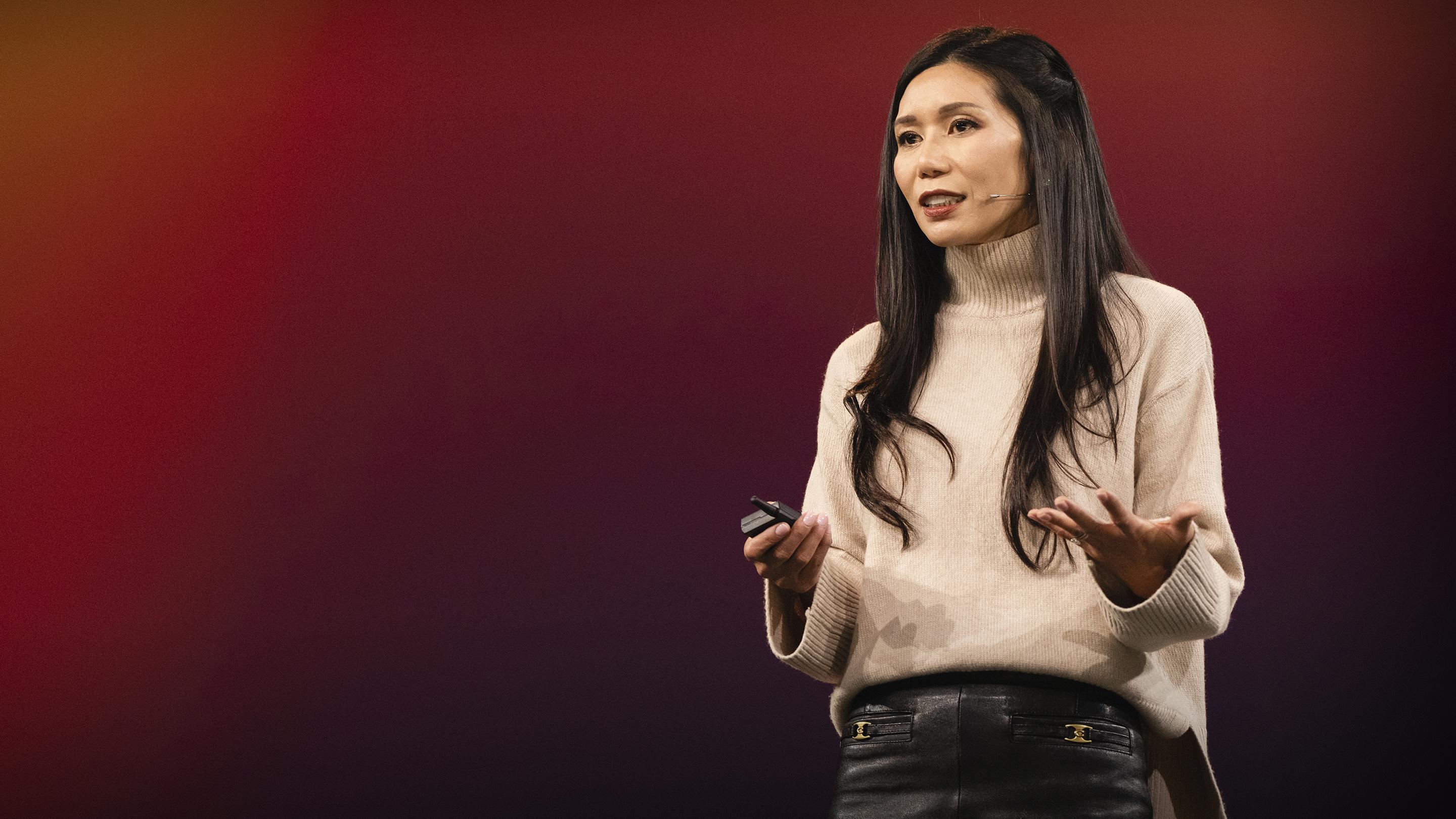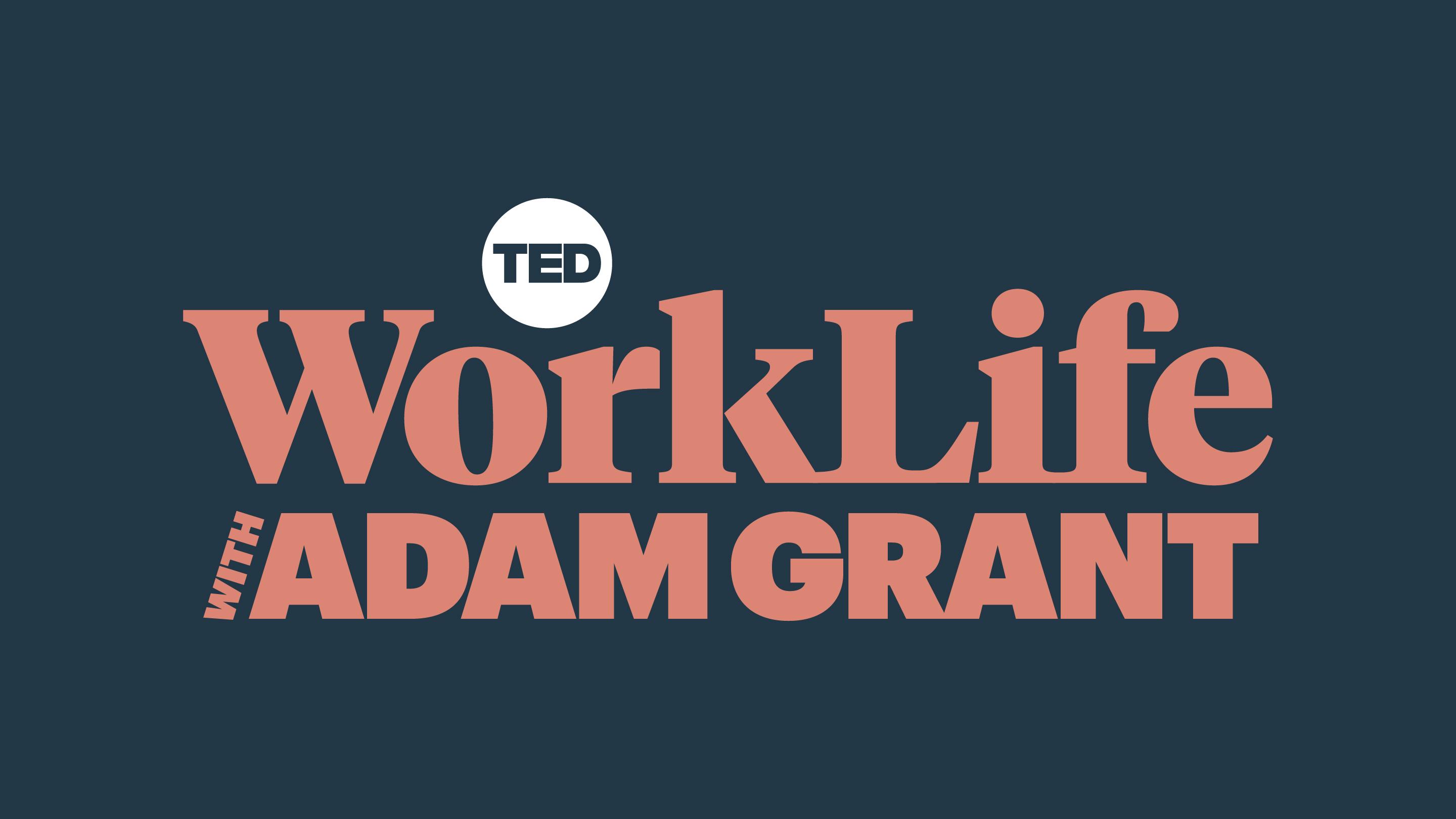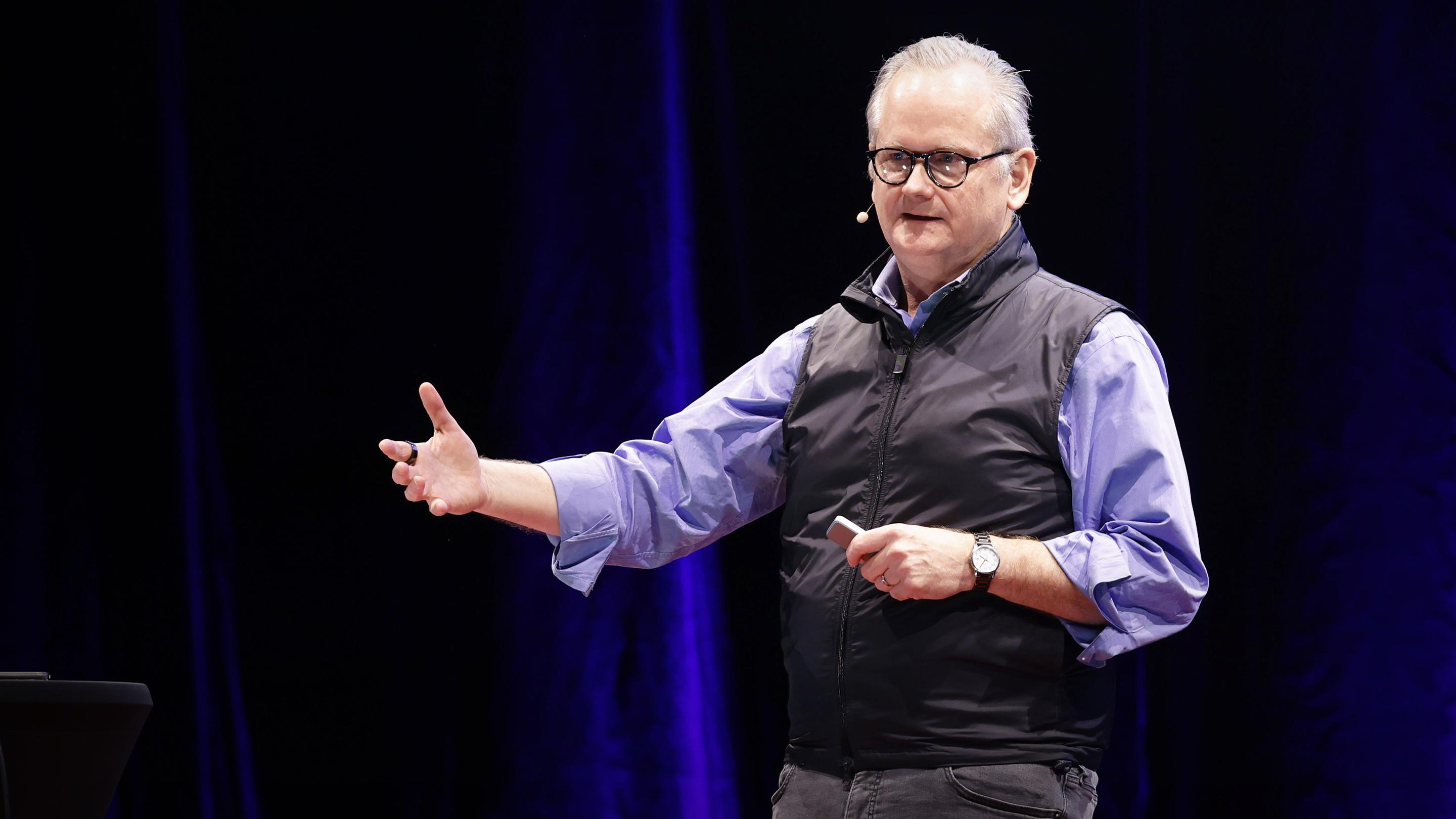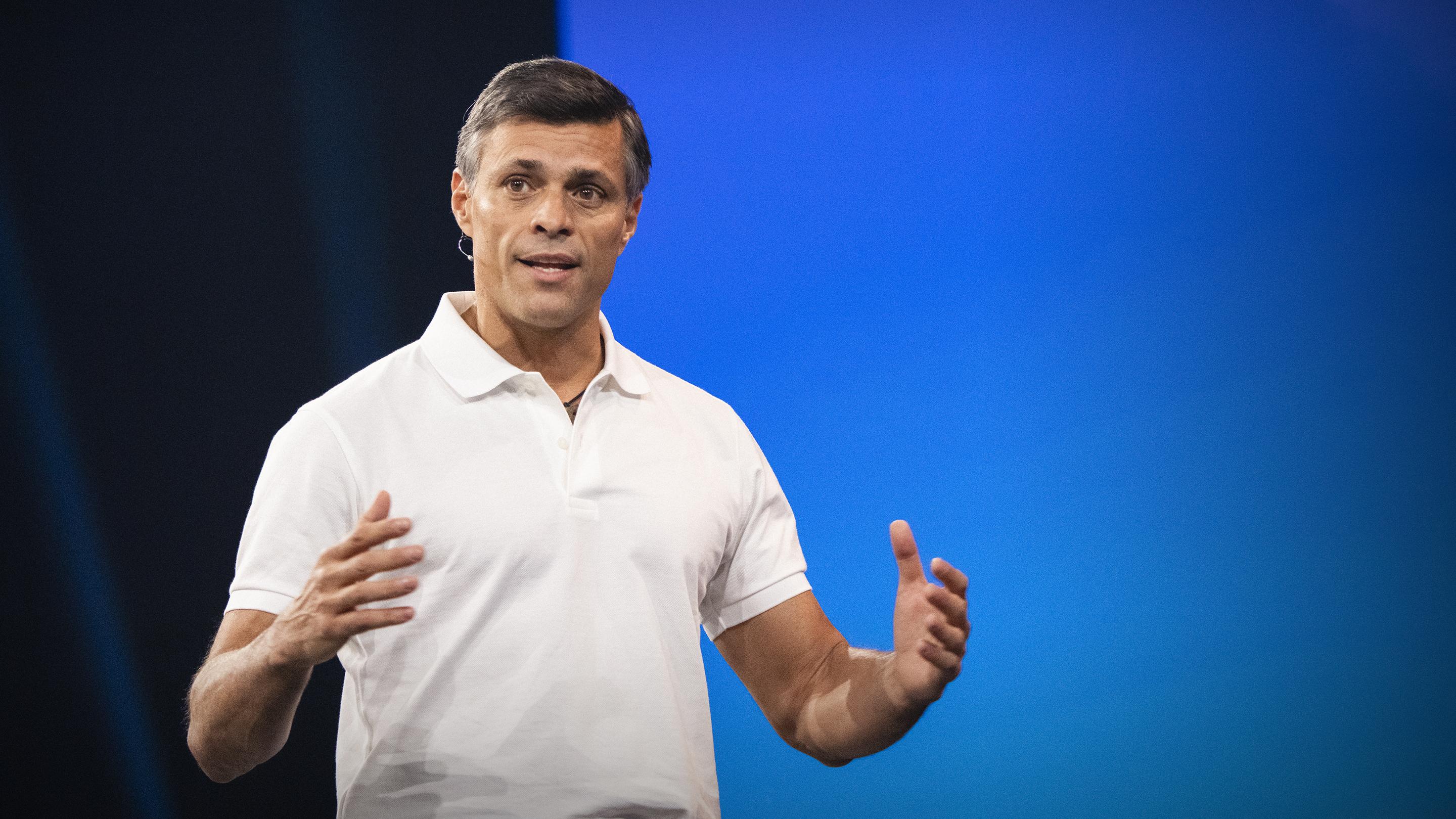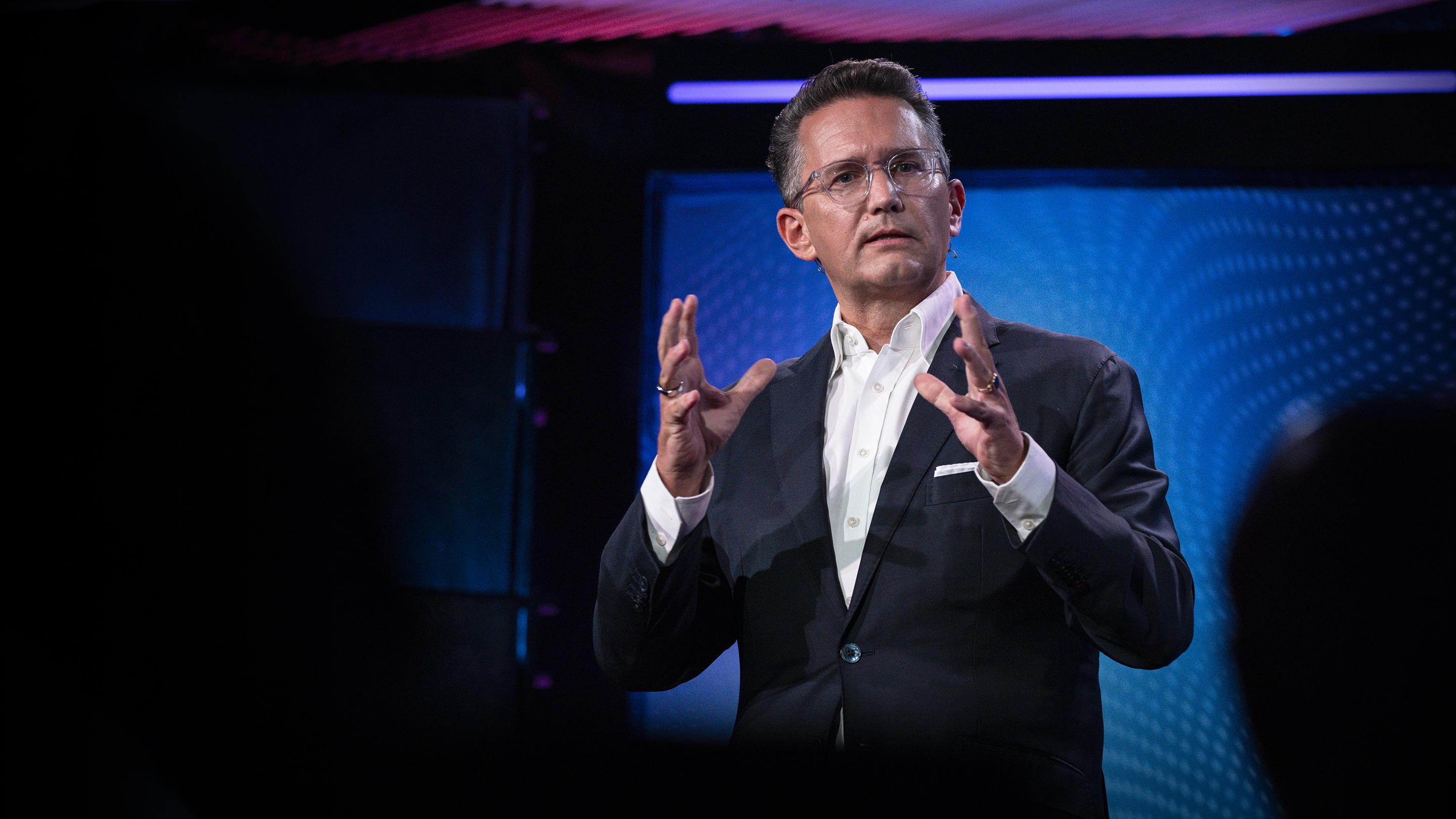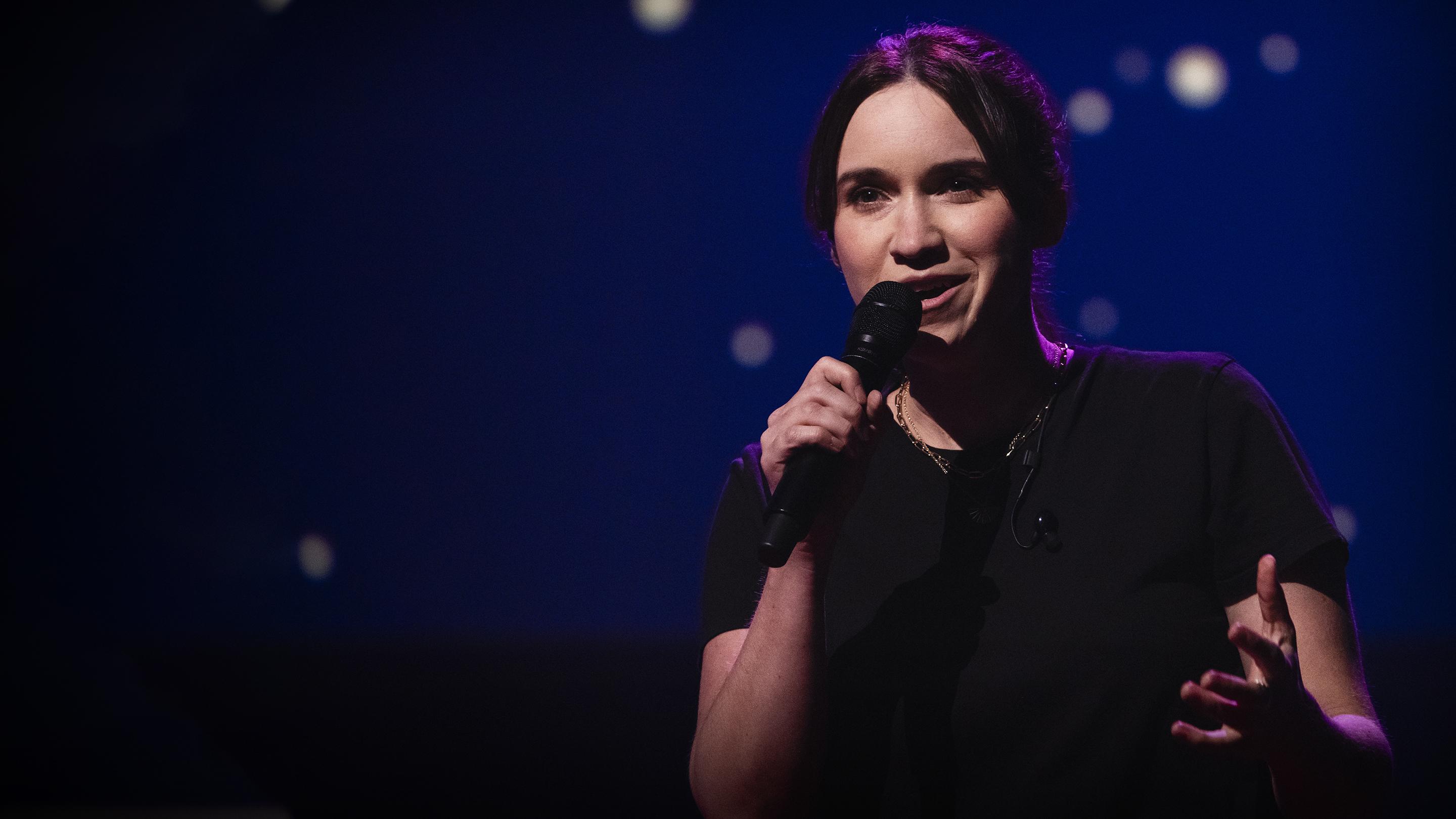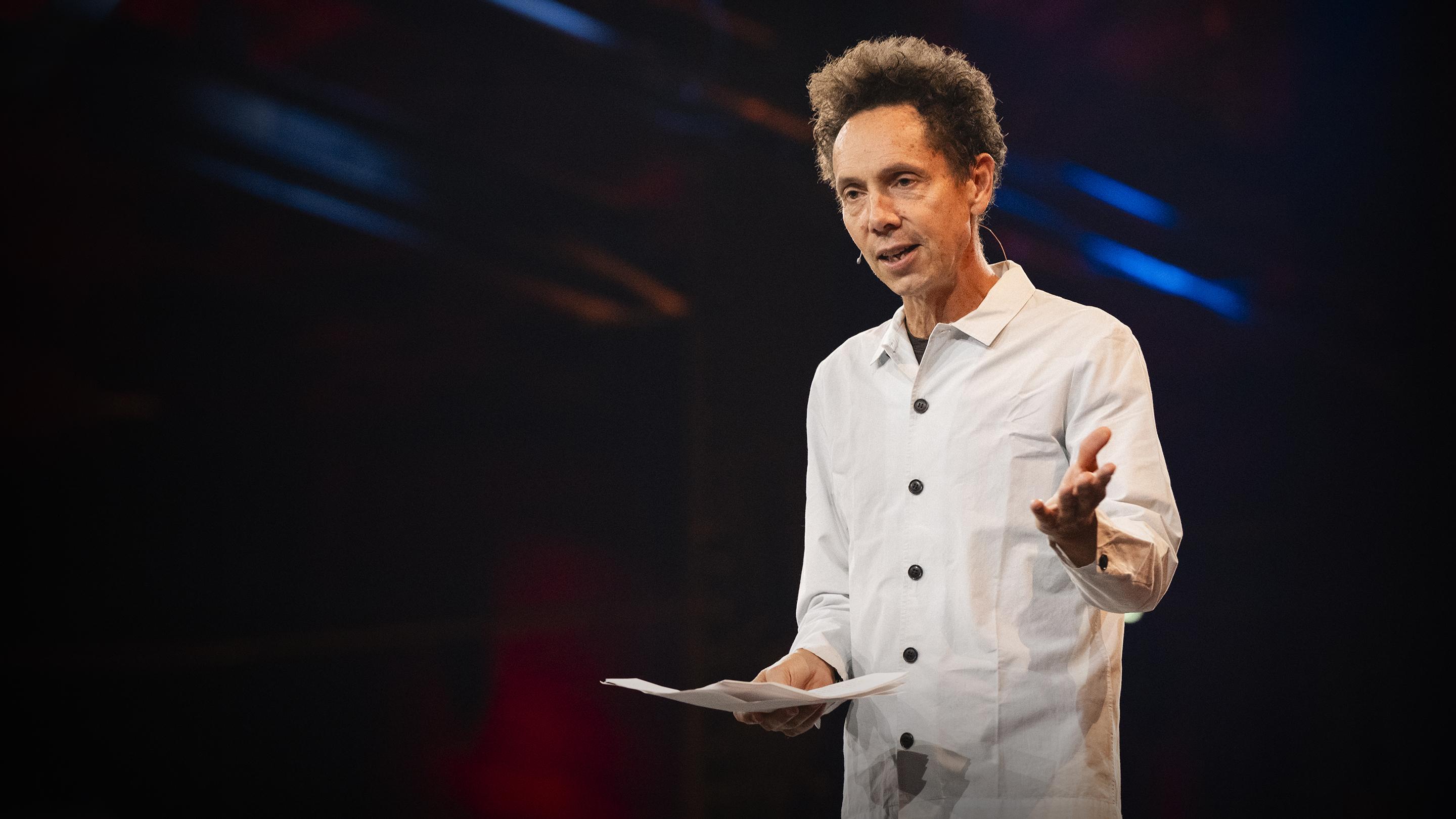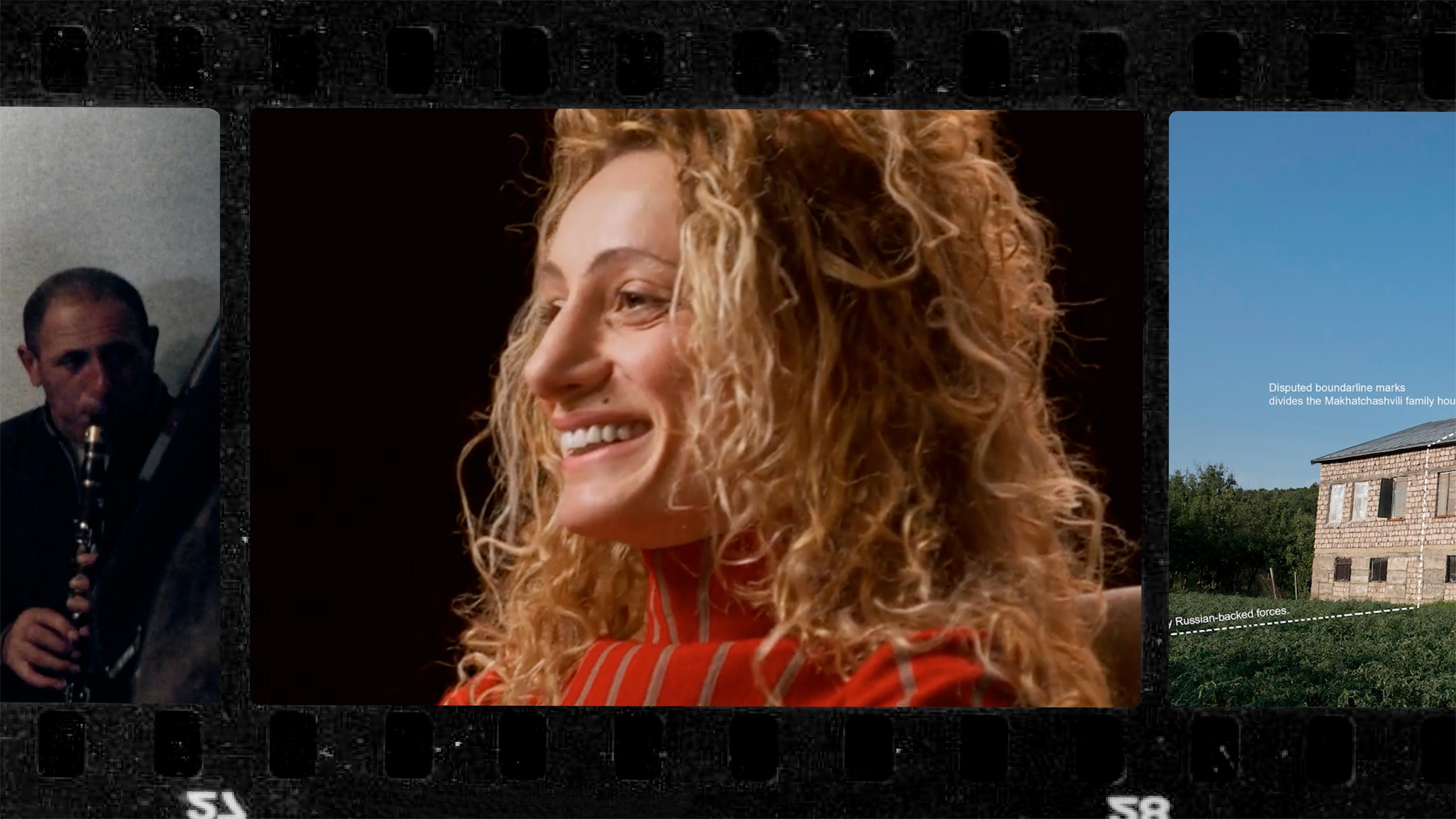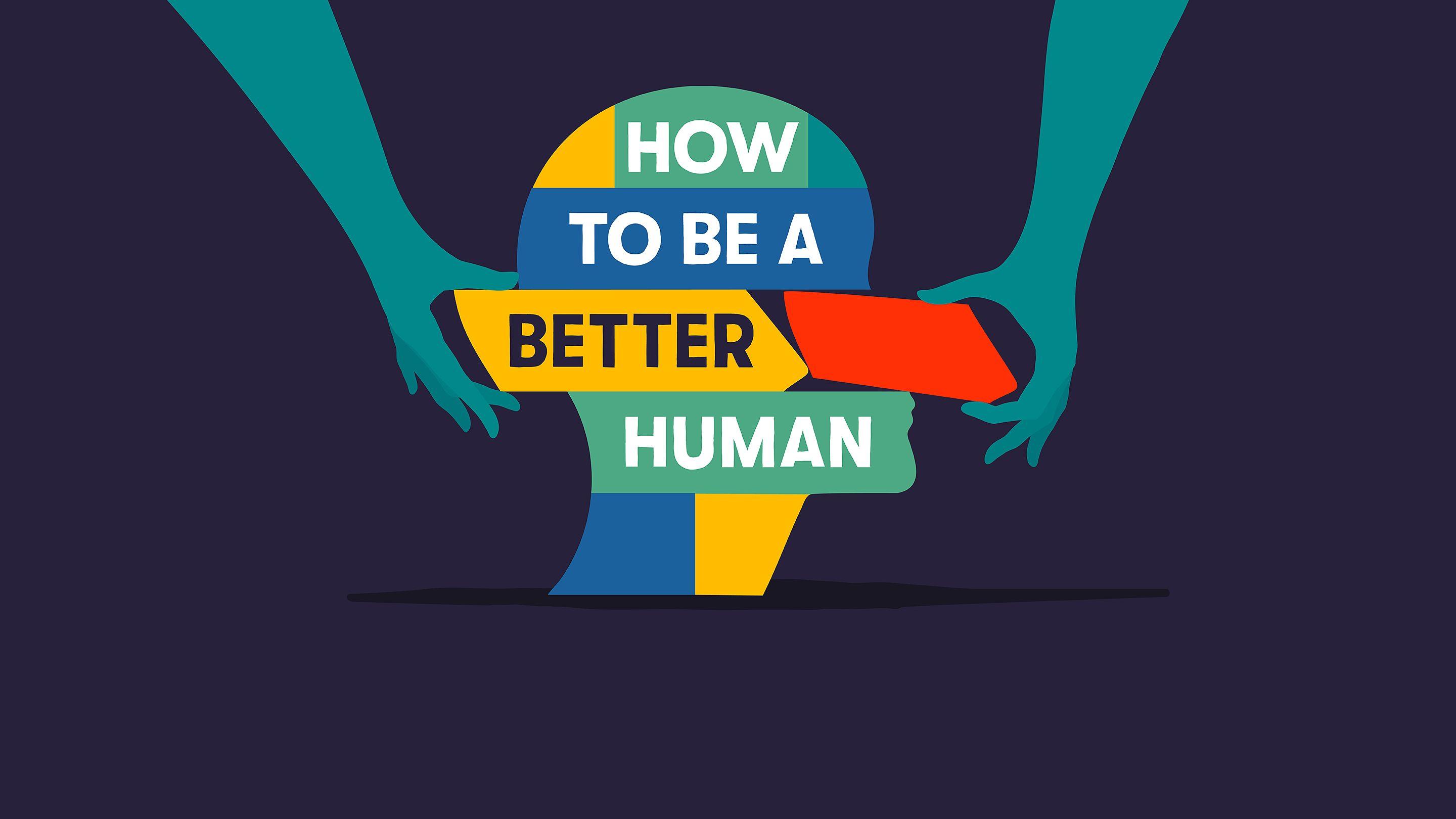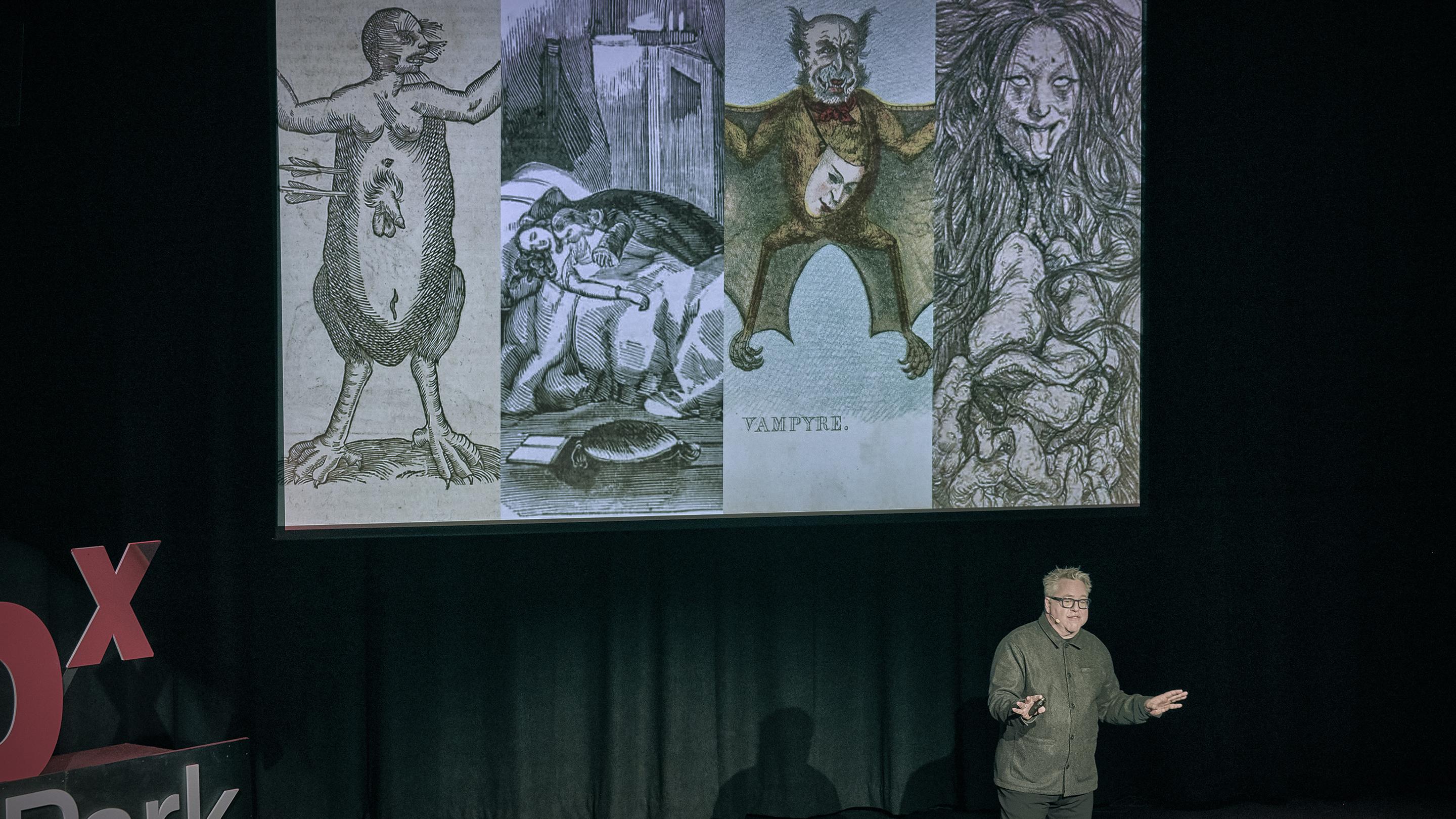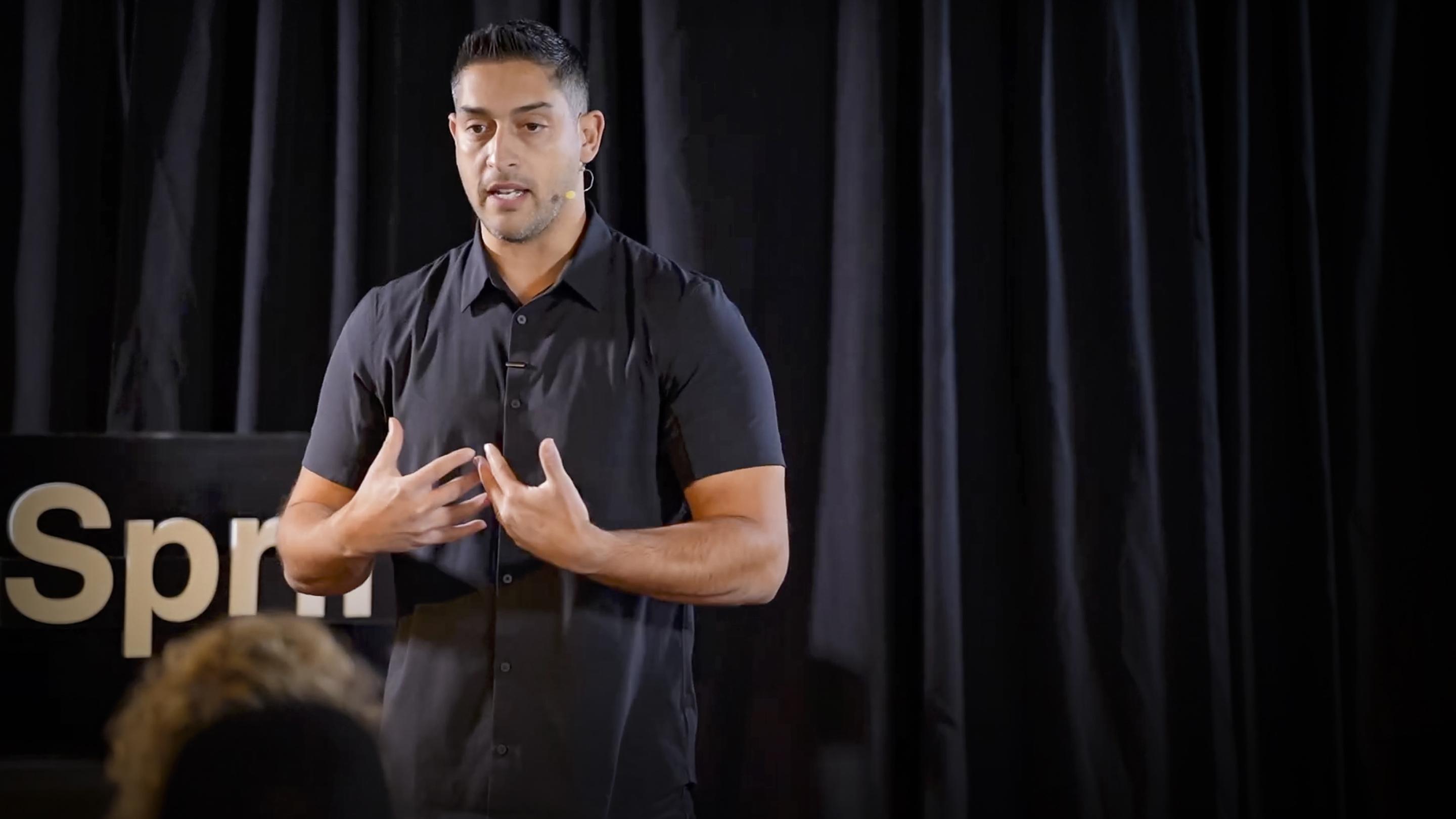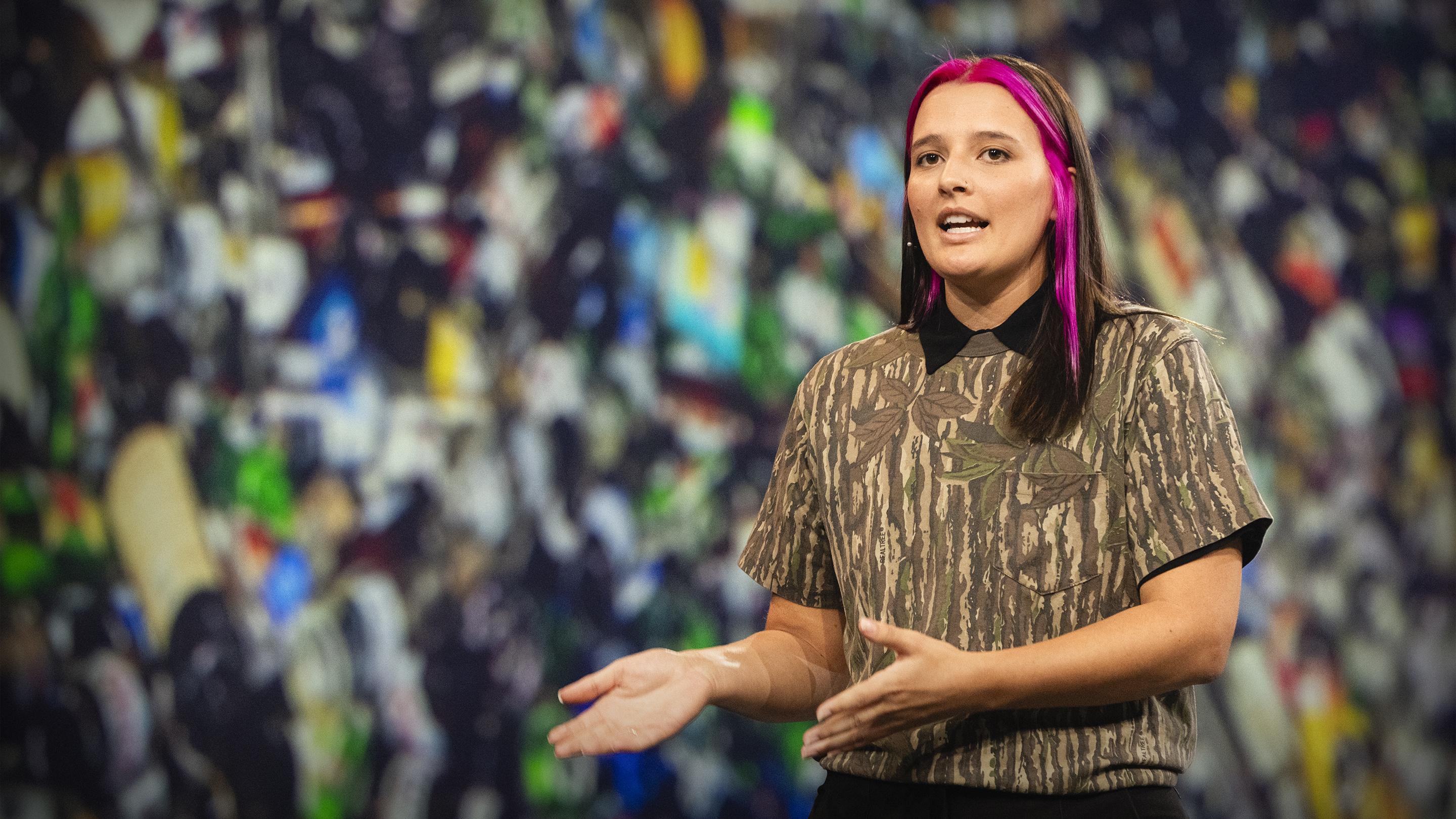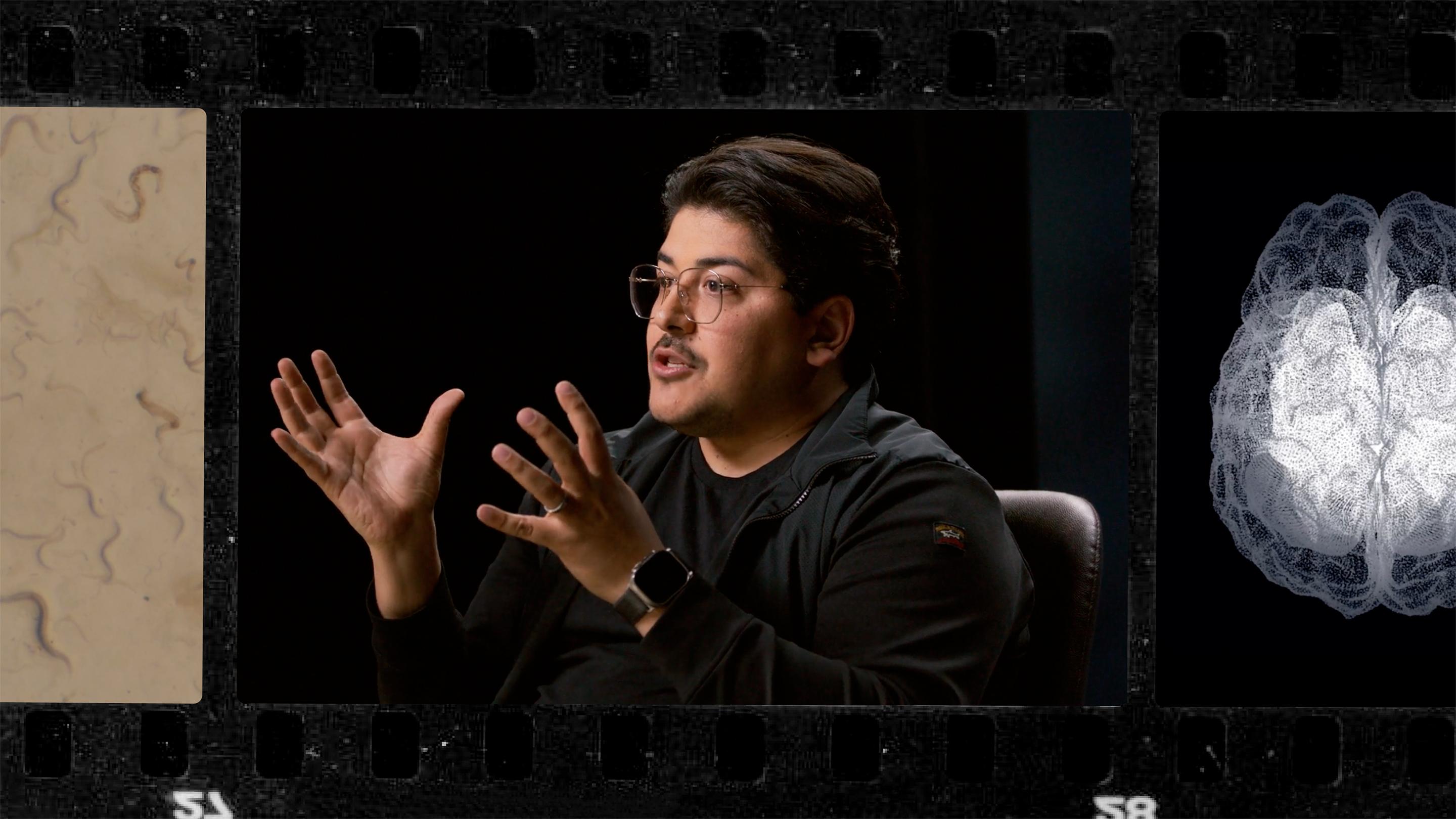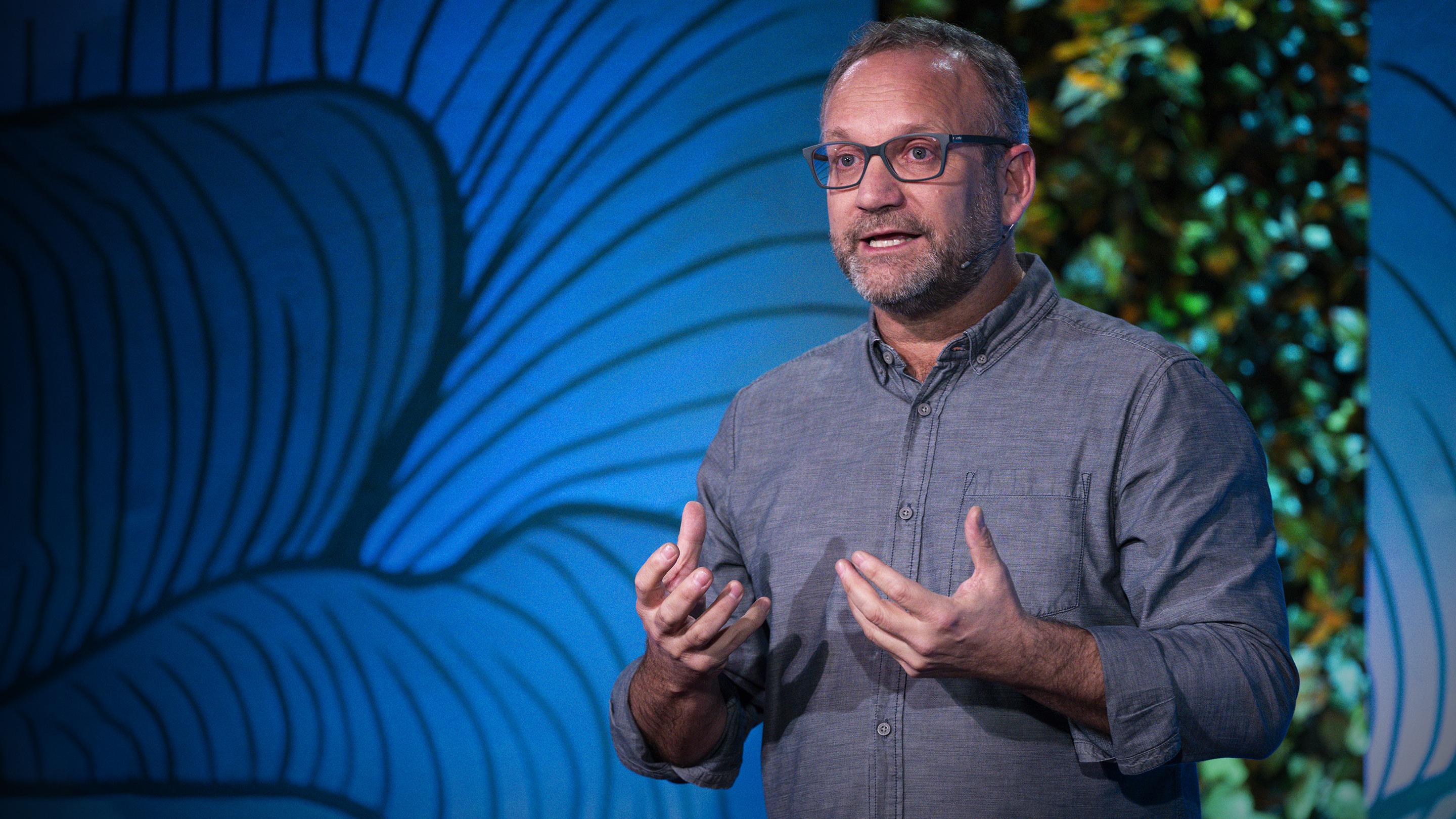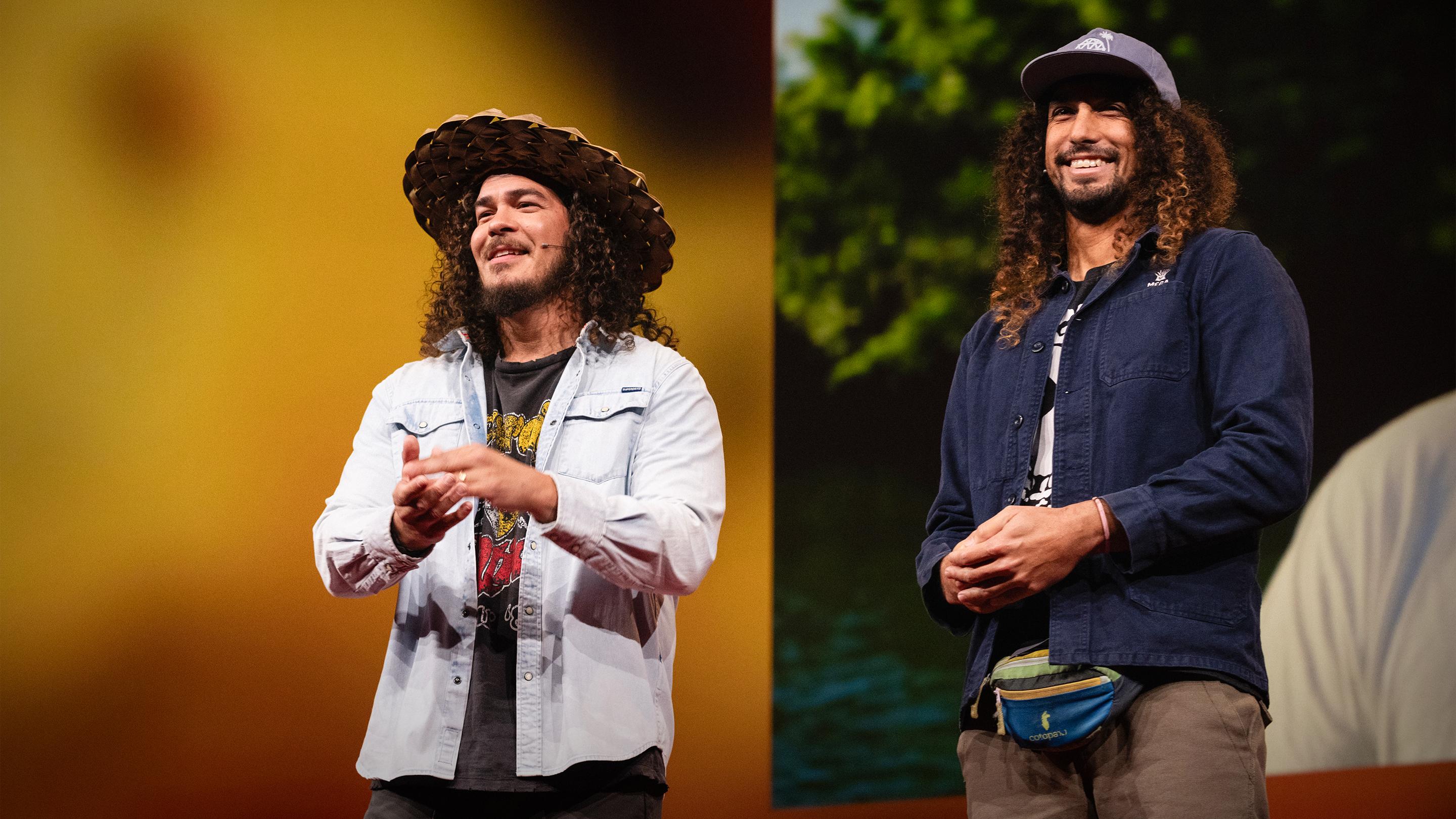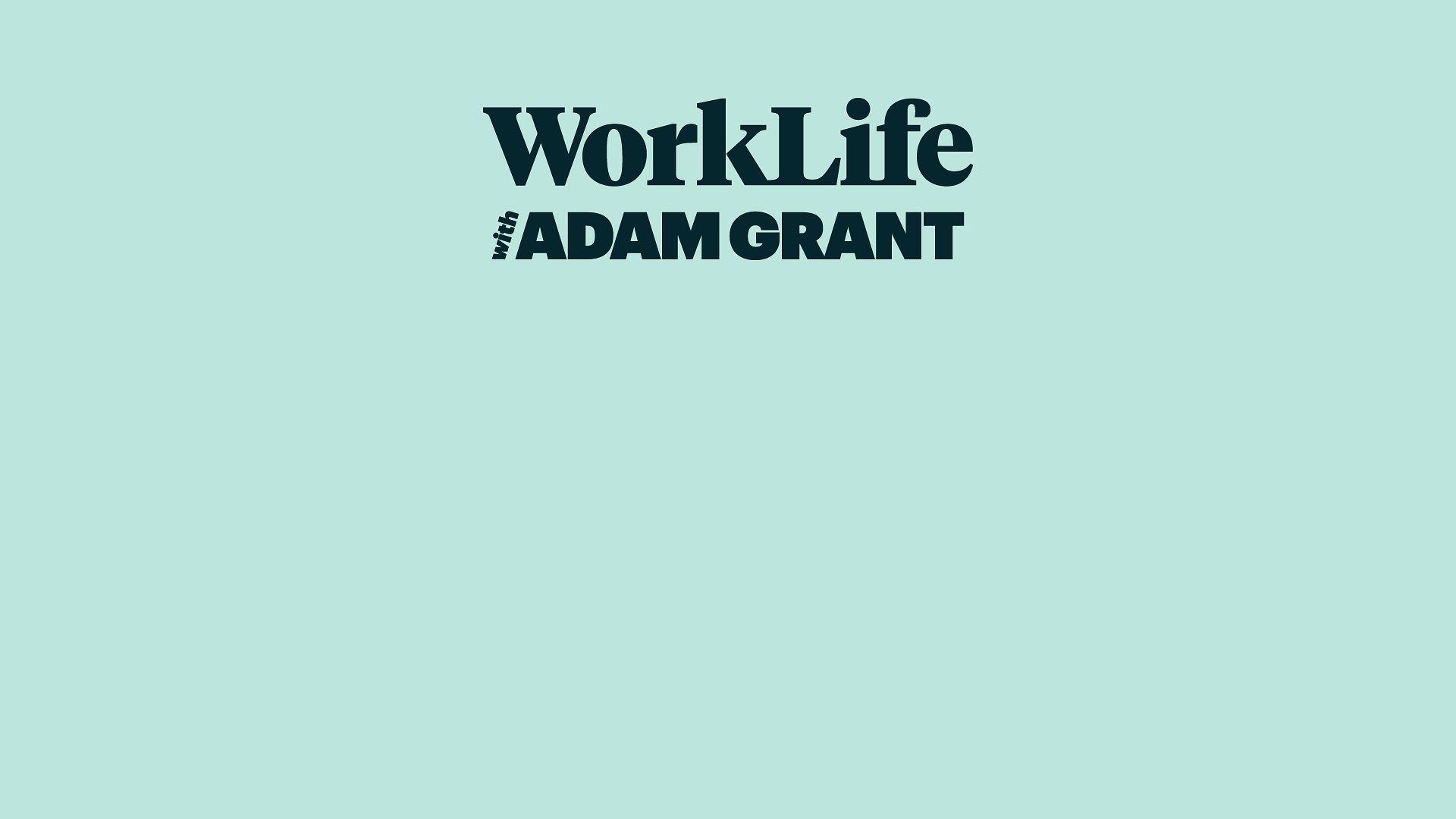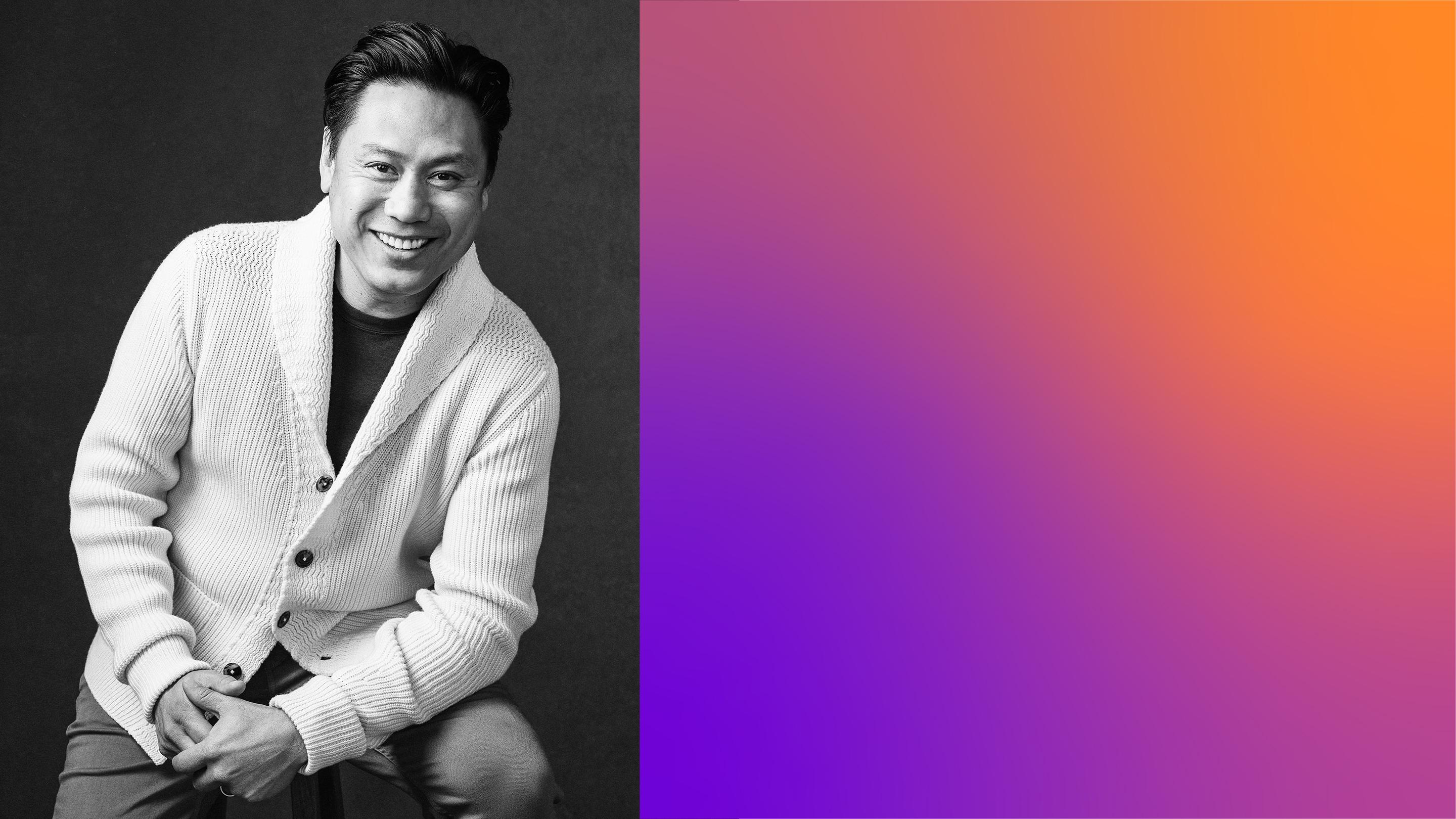Bölümler
-
"Intuition helps us see the big picture," says filmmaker and sustainability leader Hrund Gunnsteinsdóttir. Reflecting on her work at the UN, she outlines three ways innsæi (the Icelandic word for "intuition") can help humanity face our greatest existential threats — urging us to use our inner wisdom as a guide for essential change.
-
Do you hate having your photo taken? Portrait photographer Teri Hofford is here to change your mind. She unpacks why you may think you look bad in photos — and how to boost your confidence for those moments captured on camera.
-
Eksik bölüm mü var?
-
How can everyday people help foster and protect democracy? Detailing her work fighting for people power as an activist in Madagascar, Ketakandriana Rafitoson discusses how citizen assemblies — meetings where ordinary citizens get educated about democracy — empower communities to protect their rights, debate important civic questions and take action to create a brighter future.
-
Fashion is a huge part of the world's waste problem, but it doesn't have to be. Coachtopia founder Joon Silverstein shows how her company creates new designs from the waste products of another, a circular process that cuts the need for new raw materials — and rethinks what qualifies as "luxury." (Made in partnership with Coachtopia)
-
Each Sunday, TED shares an episode of another podcast we think you'll love, handpicked for you… by us. It's hard to make change at work happen. But wherever you sit in the hierarchy, there are steps you can take to overcome resistance and motivate people to embrace new ideas. In this episode of WorkLife with Adam Grant, Adam brings in an education change agent, a business turnaround specialist, and a bestselling author to identify what you can do to improve the status quo.
For the full text transcript, visit go.ted.com/WL49
-
Does AI pose a threat to democracy? Law professor Lawrence Lessig dissects how this emerging technology could influence democratic institutions, warning that we’ve already passed a point (before superintelligence or AGI) that deserves a lot more attention.
-
Seventy-two percent of the world's population lives under some sort of autocratic rule, says freedom fighter Leopoldo Lopez. In a rousing call to defend democracy worldwide, he shares the story of his imprisonment and exile for leading the movement against Venezuela's authoritarian regime — and shares his vision for uniting across borders to champion freedom and stamp out autocracy.
-
What will the world look like in 2030? International business consultant Nikolaus S. Lang predicts the evolution of a multipolar world, with multiple emerging coalitions of countries acting in new ways to achieve their economic, technological and military goals. He dives into what this will mean for the global economy, offering five tips for business leaders to prepare for the coming geopolitical landscape.
-
In this whimsical talk and performance, musician and comedian Elle Cordova ponders what happened before the Big Bang. She’s then joined by guitarist Toni Lindgren for the original song “Carl Sagan,” exploring social media, human connection and how we’re all just reaching out like stars in the night sky.
-
In his 2000 bestseller "The Tipping Point," Malcolm Gladwell told the story of why crime fell in New York City in the 1990s. Now, 25 years later, he's back with a confession and a mea culpa: "I was wrong," he says. He shares how his analysis contributed to the rise of the infamous "stop and frisk" policing policy in New York City — and shows why journalists should avoid the trap of imagining a story is ever really over. (Followed by a Q&A with TED's Monique Ruff-Bell)
-
"Georgia is not heard or seen in the world, and many don't even know the location of the country," says TED Fellow and photographer Daro Sulakauri. Through her striking photographs of life in the shadows of Russian occupation, she uses her camera to create a living archive of her home country and defend against the erasure of its borders, culture and history.
-
Each Sunday, TED shares an episode of another podcast we think you'll love, handpicked for you… by us. Whether it’s grades and test scores, cushy jobs or big salaries, our ideas of “success” tend to be incredibly narrow and often start incredibly early. Julie Lythcott-Haims is a New York Times bestselling author and former Dean of Freshmen at Stanford, and she is dedicated to helping people reconsider what really makes a happy, “successful” adult. In this episode of How to Be a Better Human, another podcast from the TED Audio Collective, Julie shares wisdom for parents and anyone who has been parented on why it’s crucial to question societal expectations, how to find your own path and why empathy towards yourself and others are the true key to loving who you’ll grow up to be.
Get more How to Be a Better Human wherever you get your podcasts.
For the full text transcript, visit go.ted.com/BHTranscripts
-
Exploring the history and evolution of vampire lore, author Eric Nuzum traces the origins of these spooky stories, from misunderstandings of death to the sparkly pop culture icons we know today. Beyond the fangs and garlic, he digs into the deeper, everyday fears that vampires reflect.
-
Networking doesn’t always have to feel like a self-serving transaction, says executive coach Daniel Hallak. Highlighting the importance of focusing on giving rather than taking when it comes to making connections, he outlines a mindset shift to help you build better relationships — in a way that doesn't feel gross.
-
What if you could take something as tiny as a grain of sand — and as common as a glass bottle — and use it to tackle the climate crisis? Waste alchemist Franziska Trautmann shares how the spark of an idea turned into a large-scale operation helping restore the eroded shores of Louisiana and beyond. (Created in collaboration with Ignite Talks)
-
What if AI could think and adapt like a real brain? TED Fellow and AI scientist Ramin Hasani shares how liquid neural networks — a new, more flexible AI technology inspired by physics and living brains — could transform how we solve complex problems.
-
Here's a wild stat: nearly one-third of the world's food production goes to waste each year, a major contributor to the climate crisis. Farmer and UN climate champion Gonzalo Muñoz sheds light on the international negotiations aimed at turning the food system into a climate solution, rather than part of the problem — and shows the progress already underway.
-
Is it possible to meet the world's seemingly infinite demand for data storage while also caring for the natural environment? Biomedical researcher Keolu Fox and professional surfer and scientist Cliff Kapono believe that Indigenous knowledge combined with the science of genetics may offer such a solution: using the DNA of plant cells (like those found in sugar cane) as mini data warehouses. Learn more about the incredible potential of this technology — and how it could help foster ecosystem resilience in a high-tech world.
-
Each Sunday, TED shares an episode of another podcast we think you'll love, handpicked for you… by us. Many people believe that success depends on gaining power, but it turns out that status is a more sustainable path to accomplishment and impact. In this episode of WorkLife with Adam Grant, another podcast from the TED Audio Collective, Adam is joined by Survivor star Parvati Shallow, organizational psychologist and author Alison Fragale, and Chynna Clayton — former special assistant to Michelle Obama — to break down the best strategies for gaining and maintaining status at work, building stronger relationships, and getting promoted. Available transcripts for WorkLife can be found at go.ted.com/WLtranscripts
-
Filmmaker Jon M. Chu has enjoyed an incredible run of success, directing films like "Crazy Rich Asians," "In the Heights" and the highly anticipated adaptation of "Wicked" in theaters soon. But he wasn't always sure he'd make it big. In a wide-ranging conversation, Chu gives his thoughts on nurturing creativity, embracing failure and finding inspiration in your upbringing — as well as some key leadership lessons from his new memoir, "Viewfinder." (This live conversation was hosted by TED's Whitney Pennington Rodgers. Visit ted.com/membership to support TED today and join more exclusive events like this one.)
- Daha fazla göster


